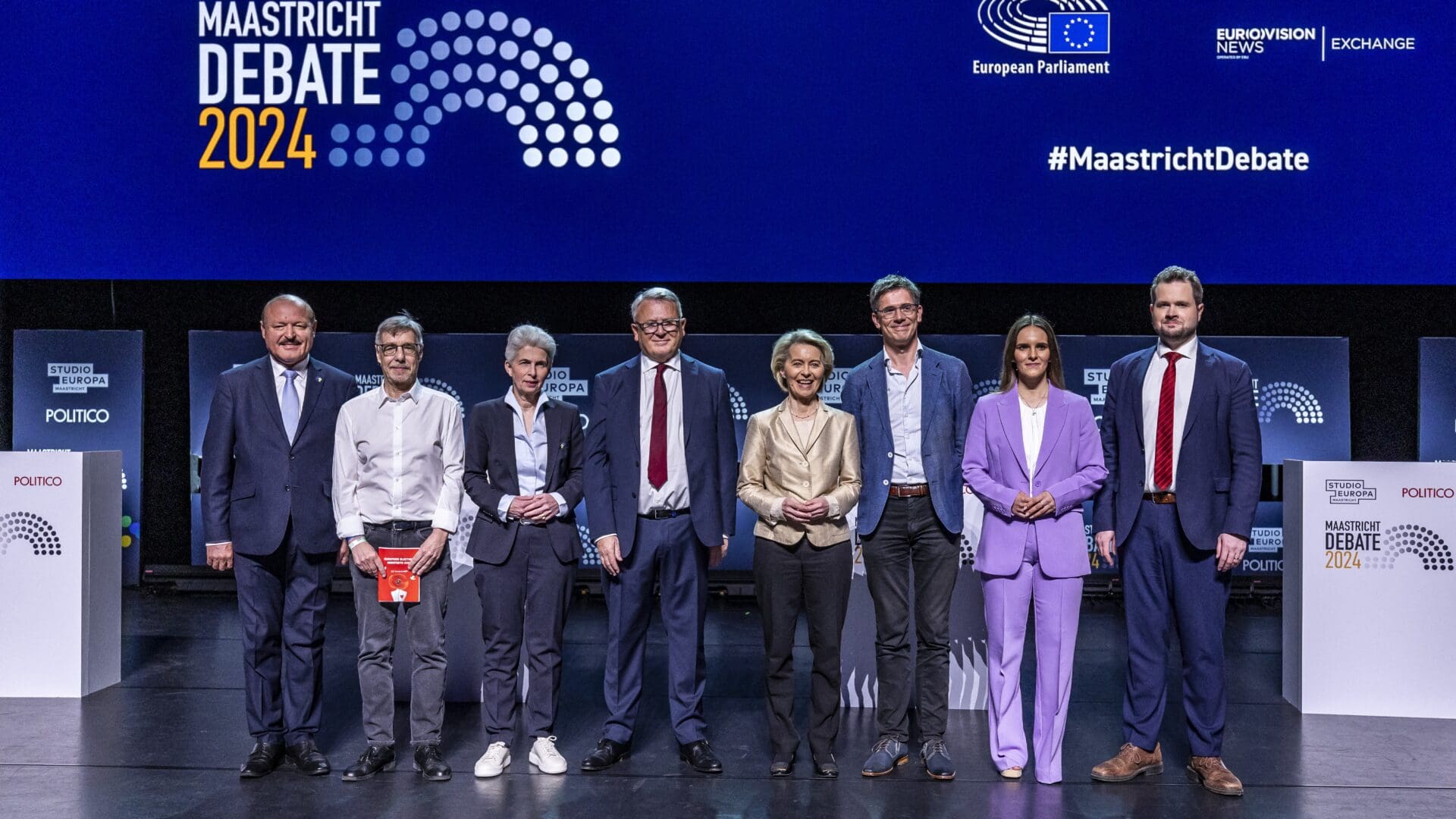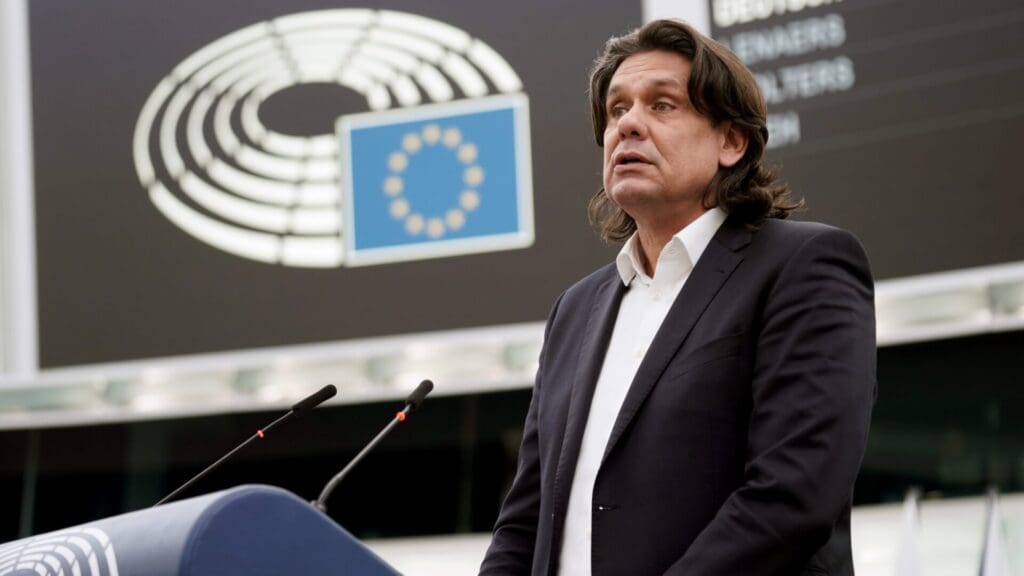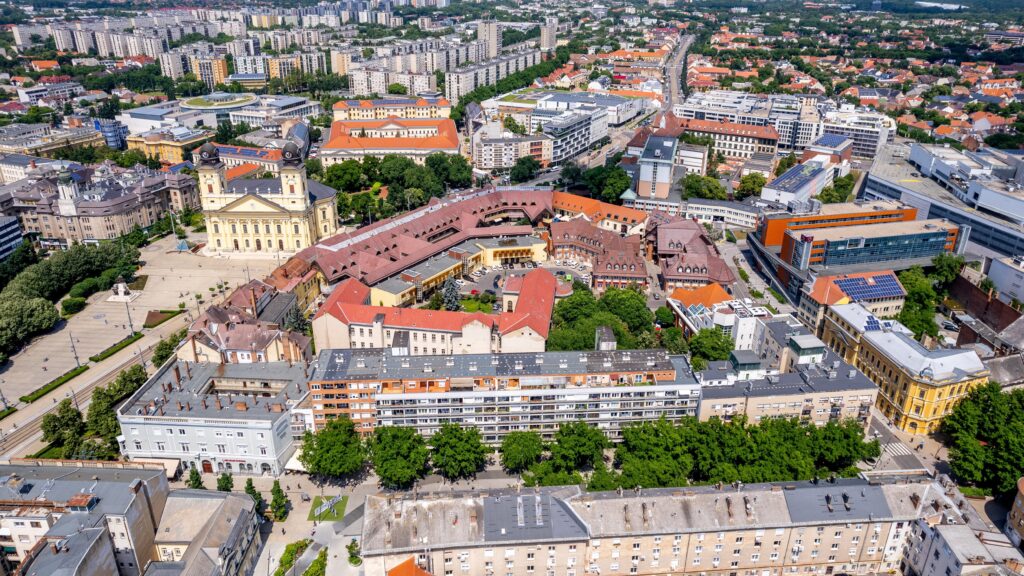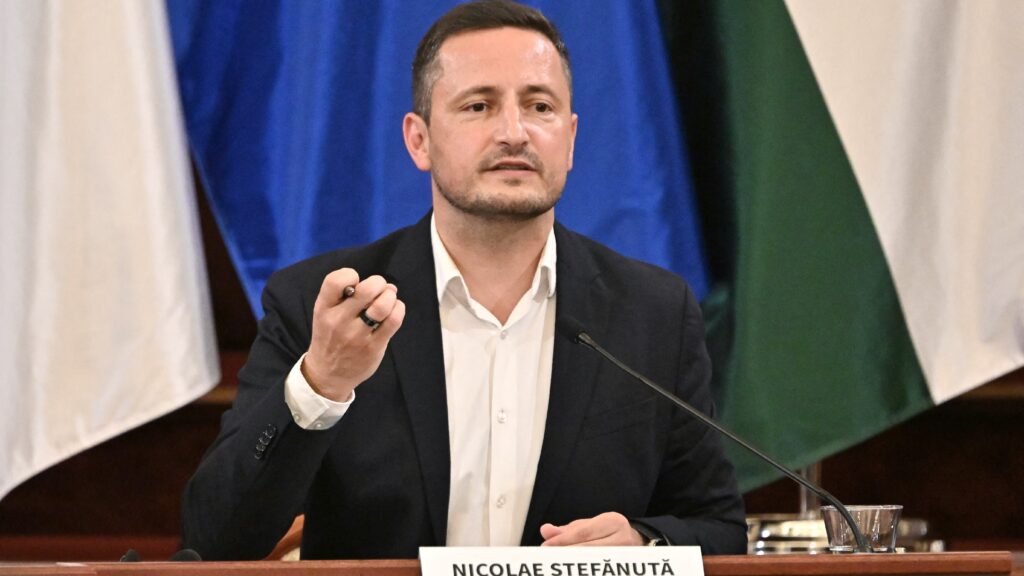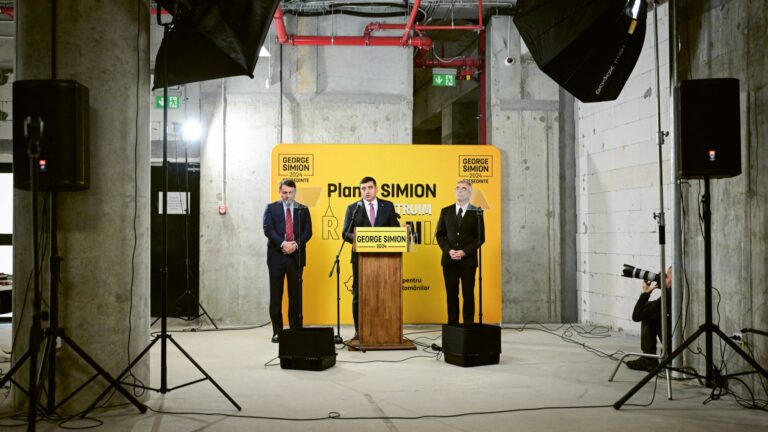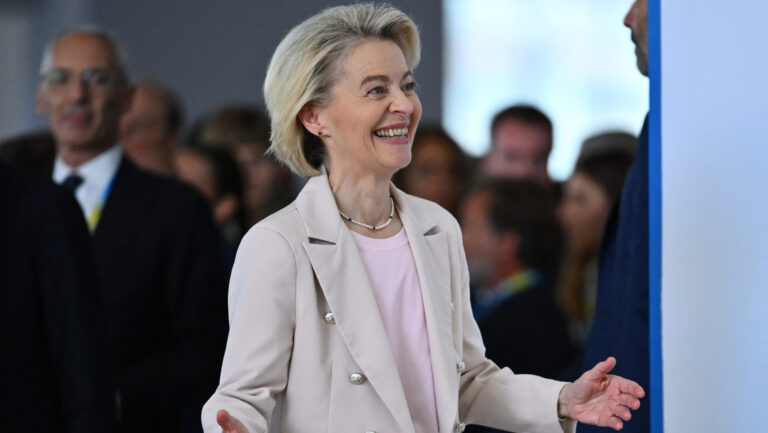Neither Identity and Democracy (ID), nor the European Conservatives and Reformists (ECR) were invited to the European Parliament election debate organised by the European Broadcasting Union (EBU), as reported by POLITICO. The reason given is rather surreal: the two fastest-growing political groups are excluded from participating in the debate during the run-up to the elections because they oppose the Spitzenkandidat system, under which political groups nominate candidates for the presidency of the European Commission.
‘The European Parliament and the EBU has reached a new low point in democratic standards. Facilitating a debate that excludes up to 25 per cent of the European electorate has nothing to do with democracy. Clear hypocrisy from the same people who wants to lecture member states on rule of law and democracy,’
Anders Vistisen, a Danish MEP who represented ID at the Maastricht Debate organised by POLITICO in April, wrote on X.
Anders Vistisen on Twitter: “The European Parliament and the EBC has reached a new low point in democratic standards. Facilitating a debate that excludes up to 25 % of the European electorate has nothing to do with democracy.Clear hypocrisy from the same people who wants to lecture member states on rule of… / Twitter”
The European Parliament and the EBC has reached a new low point in democratic standards. Facilitating a debate that excludes up to 25 % of the European electorate has nothing to do with democracy.Clear hypocrisy from the same people who wants to lecture member states on rule of…
The EBU has invited five political groups to participate in the debate on 23 May: the far left, Greens, socialists, liberals, and centre-right. On 7 May, they informed senior politicians from Identity and Democracy (ID), through an email shared with POLITICO by Vistisen, that ID cannot field a candidate in the debate as it has not officially endorsed a lead candidate for the presidency of the next Commission. However, despite not being an official top candidate, Vistisen notably assumed the role of a potential European Commission president during the Maastricht Debate. In his speech, he proposed the dismissal of 10,000 EU civil servants, starting with Ursula von der Leyen.
The Spitzenkandidat system was first utilized in 2014. It involves political groups in the European Parliament proposing a candidate to the European Council. The Heads of State or Government of the Member States then vote by qualified majority on the candidate, considering the results of the European Parliament elections and the resulting balance of power. The elected candidate subsequently—after the approval of the EP—becomes the head of the European Commission.
The system proved effective in 2014 when the lead candidate of the European People’s Party (EPP), Jean-Claude Juncker, was successfully elected as President of the Commission, despite opposition from some Member States, such as the UK and Hungary, in the Council. However, in 2019, the Council deviated from the established rules of the system and did not endorse Manfred Weber, the EPP candidate. Instead, they reached a consensus on Ursula von der Leyen. Interestingly, according to reports, Hungarian Prime Minister Viktor Orbán played a significant role in the 2019 process, effectively sidelining two top candidates: the Socialist candidate Frans Timmermans and Manfred Weber. Orbán has also been dubbed the 'Spitzenkandidat Killer' in some media outlets.
ID and ECR object to the system because it extends the powers of the European Parliament beyond its original scope, granting it an influence not explicitly defined in the EU treaties.
The EBU’s decision to exclude ID and ECR from the debate is particularly contentious and could be viewed as censorship rather than a justified exclusion. This is because
the parties invited did not adhere to the traditional Spitzenkandidat system either.
For instance, the EPP candidate, the current Commission President Ursula von der Leyen, is not contesting the EP elections, and the same is true for the Socialist candidate, Nicolas Schmit. This deviation fundamentally challenges the traditional application of the term Spitzenkandidat. Additionally, other parties, such as the Greens, have nominated multiple candidates, like MEPs Bas Eickhout and Terry Reintke, for what is typically a single-person role. The Liberals have gone a step further by nominating three candidates, all of whom have publicly declined any intention to run for the Commission presidency at their campaign launch.
This incident is not the first recent attempt by the left to suppress dissenting voices. As reported by Hungarian Conservative, in April, the mayor of Saint-Josse-ten-Noode, Emir Kir, tried to prevent the right-wing National Conservatism Conference from taking place. Kir even deployed law enforcement forces to shut down the right-wing gathering. The event, which featured speakers such as Nigel Farage, the architect of Brexit, and Viktor Orbán, went ahead despite these efforts after the mayor’s attempts were unsuccessful.
PM Orbán commented on the unusual crackdown of the Brussels police at the time:
‘The Belgian police decided to shut down the @NatConTalk conference in #Brussels, just two hours after it started. I guess they couldn’t take free speech any longer. The last time they wanted to silence me with the police was when the Communists set them on me in ‘88. We didn’t give up then and we will not give up this time either!’
After the events surrounding NatCon, the exclusion of ECR and ID from the EP election debate is another sign that what is at stake at the elections is no longer just whether the new EP will be pro-peace or pro-war; it is also whether
it is even possible to express views contrary to the mainstream left-wing progressive agenda
over the next five years. The liberal opinion dictatorship has shifted into a new gear in recent weeks, but it is not a new phenomenon: the European Commission, the European Parliament, and various progressive non-governmental organisations and think tanks have long been engaged in efforts to silence their political opponents across all available platforms and by any means possible.
However, it appears that the left’s tactics are losing effectiveness. Despite being marginalized by traditional EP-groups and labelled as fascist, ID is projected to become the third largest group in the new parliament. Similarly, the ECR is expected to rise to fourth or fifth place after the elections, indicating significant growth. Europeans, weary of opinion suppression reminiscent of the communist era, have an opportunity to challenge the left-wing elite in Brussels by casting their votes. This sentiment reflects a growing demand for change and a pushback against perceived censorship.
Related articles:

